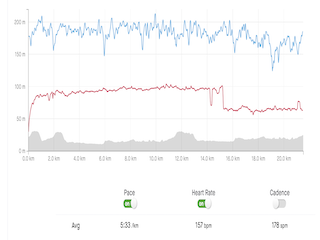

Why does my heart rate oscillate up and down on the Instinct 2 X solar?
It seems to do this for most workouts. The sensor is clean, worn 2 cm above the ulnar prominence and the strap tight. The problem persists between resets. I am not on the beta program.
My forerunner 255 does not behave this way as do none of my other sport watches.
I am starting to develop buyers remorse as there are other issues in addition to this one (failures workout calendar synchronisation)
I think there are a lot of fake reviews on Youtube.



